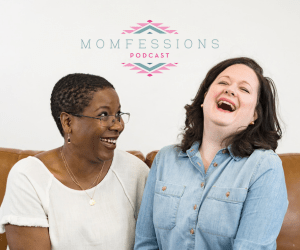My husband and I have walked into my late mother-in-law’s house for the last time.
We are in the process of settling her estate, including the sale of her house and disposition of everything in it.
From a hutch filled with china and crystal goblets to overflowing jewelry boxes and coin collections. And everything in between.
A lot in between.
Her clothes. The Notre Dame sweaters my late father-in-law was so fond of wearing. Her furniture. Furniture inherited from her mother-in-law, still in the same place in the garage where it was originally placed 30 some-odd years ago. My husband’s Cub Scout uniform. Christmas decorations. Lots and lots of Christmas decorations.
Every room, every closet, every shelf, every drawer. Full of stuff. A lifetime of stuff. Two lifetimes, if you count my father-in-law, who passed away 11 years ago.
What to Do With a Lifetime of Stuff
My mother-in-law was a neat and tidy housekeeper. But like many of us (myself included), she lived in a good-sized house with plenty of room to accommodate stuff. Things inherited from her parents and her in-laws. The broken vacuum cleaner waiting for repair in the back of the closet. Hundreds of books read once. You get the picture.
And the cost of disposing of all of that stuff? Having the estate sale company we hired go through every room, every closet, every drawer, separating the trash from the treasures, may cost more than will be generated at the eventual estate sale.
Her house has been transformed into a store, the estate sale company having cleverly arranged and displayed my mother-in-law’s possessions on tables in every room.
All of her possessions with any value, save the very few we kept, each with a tiny white price tag.
Losing your last surviving parent is hard enough. But being the arbiter of which of your parents’ and grandparents’ treasures get saved and which end up sold, donated, or in a landfill? gut-wrenching.
The lesson we have learned from this experience?
Most of the stuff in your house is worthless. And eventually, someone, either you or your kids, will be tasked with the overwhelming job of getting rid of it.
Most of Your Stuff Is Worthless
Most of the stuff in your house is worthless.
Yes, even the stuff you worry the most about, the stuff you think is so good you don’t use it for fear of breaking it, has little to no resale value.
From china, china cabinets, crystal goblets, silver tea sets, pianos, and collectible figurines like Hummels, to grandfather clocks and real pieces of craftsmanship furniture.
Why? Baby boomers have glutted the market with their castoffs, and millennials, the next generation of buyers, don’t want it.
Millennials hate both formal in-home entertaining and use of second-hand goods. With looming student loans, they tend to rent and move often. Who wants to be constantly moving a piano and a grandfather clock from apartment to apartment?
And furniture? There’s no market for so-called “brown furniture,” meaning any furniture (regardless of quality) other than the “mid-century casual” furniture (think clean, lightweight) favored by millennials. Brown furniture is basically firewood.
If it’s not in great condition, it’s also not fit for donation because it can’t be resold.
All of my mother-in-law’s furniture (including the pieces inherited from her mother-in-law and kept for decades)? Straight to the landfill.
Well, Almost Everything…
What do guns, LPs (records), and precious metals/gems have in common?
They are 3 things you might have in your house with a robust resale value.
Silverware also has value, but only if it is real silver and can be melted down.
3 Things You Should Be Doing NOW to Reduce the Amount of Stuff You Have
1. Be viciously thoughtful about holding onto sentimental items.
Here was our goal with sorting through my mother-in-law’s things. Keep just enough to remind us of her, but not so much stuff that our daughters are going to be dealing with it 40 some-odd years from now.
Here’s what we kept:
- A painting to be displayed in our dining room
- My mother-in-law’s treasured Swarovski crystal animal collection (all of which were given to her by her children and grandchildren over the years)
- Jewelry to be divided among the granddaughters
- Each of our daughters got to select 1 item
And that was it.
Well, almost. We did set aside photos to be digitized (with the originals then destroyed).
Was it hard leaving everything else? You bet it was. But we don’t want to be dealing with a lot of stuff years from now (or worse, leaving it to our daughters to deal with).
I try to be viciously thoughtful with my own sentimental items. For example, I don’t save any school papers or art projects from my kids (though I do take photos of my favorites).
2. Buy fewer books.
While used book resellers like Half Price Books do an important service in keeping books in circulation, a surprising number of books end up in landfills because many paper recycling facilities can’t process the the glue that binds book spines.
My resolution last year was to cut down on my book consumption by only reading books that I borrow from the library or purchase on my Kindle e-reader. If you haven’t used a library in years, now is the time to go back. My local library has an app where you can “order” books online, and pick them up the next day on a special “hold” shelf strategically placed next to the check-out kiosk.
How successful was I on my resolution? I read 1 to 2 books a week in 2019, only 1 of which was a hard copy purchased from Amazon.
3. Buy fewer, but better quality, clothes
The world is overflowing with used clothing.
We buy substantially more clothing over our lifetimes than our grandparents did.
Clothing made today is meant to last no more than a few years. In fact, a lot of clothing isn’t even made to withstand more than a few washes.
Think you are “paying it forward” but dropping off a load of unwanted clothes at Goodwill? Think again. Most clothing donations never make it to the racks at Goodwill and only about a third of what does eventually sells.
To really pay it forward, cut down on the amount of clothing you have by buying better quality clothes that last longer.
Keeping What Really Matters
My 5-year-old chose to keep a Christmas music box from her Grandma’s house. It plays “White Christmas” and has tiny ice skaters going around a rink inside. Each Christmas, my mother-in-law would bring out this music box and let each of her granddaughter’s play with it. It’s value in preserving a precious memory of Grandma? Priceless.














This is a very snooty article. I’m in between these ages, but I have family on both ends of the spectrum. I know tons of millennials who love to go to thrift shops. I have very nice quality furniture that was given to me by a neighbor when her mom moved. I agree we all store junk that could probably have a better life somewhere else, but can we stop vilifying this generation for being wasteful or that generation for hanging onto the things that matter to them that you might not see any value in? It’s petty and doesn’t help anyone.
couldn’t agree more….
Why in God’s name would you destroy ORIGINAL photographs after digitizing them?? Digitizing is meant to be an additional form of preservation and sharing in the event of a disaster, not an alternative to keeping family heirloom photos for generations to come. I’m hoping what you got rid of was 1990s-2000s color photos and not vintage 1940s album photos.
I think we are going to see a renaissance of good quality. Some millennials I speak with think that up-cycling, recycling are good options. Yes, they will probably move more frequently than we boomers did/do, but it doesn’t mean that they don’t appreciate quality. Of course, I’m probably biased. We provide senior relocation, downsizing and estate liquidation services, so I’m in the business of helping people let go of extra stuff, but I’m also in the business of finding new homes for the extra stuff so that it doesn’t go in the landfill. The Dallas area has several Caring Transitions’ offices. If you need help in the future, I would suggest that you reach out to them. We have several options for liquidation services, it’s not a one size fits all ESTATE SALE. Depending on the size and scope of the estate, an online auction on CTBids, might just be the answer.
I understand what is being said in this article, but I have the: “One mans trash is another mans treasure”. That said, at least look through eBay before discarding the things. It costs very little to offer it once and then if it doesn’t sell, then throw it off a cliff, etc.
This is my current dilemma. I have no idea what to do with my deceased parents stuff that is residing in our ancestral house. So many memories and that is whats keeping me stressed out. My family has been very sentimental about material things and my mom loves to collect knick knacks. I would love to keep them somewhere but eventially needs to be thrown out or sold. So much stuff that I have to go through and it is making me sad.
Kids now days do not want this stuff but some of it isn’t worthless, you can almost always flip something for a buck. It just takes a lot of time. Animal rescues can take pillows, blankets, towels, sheets.
“Don’t buy much, but be sure what you buy is good.” – Christian Dior
I disagree with the writer’s point of view. To validate my belief, I asked my daughter:
1.) if she considers my stuff worthless junk. Her response: No.
2.) Will she be using them/ needing them long after I’m gone. Her response: Yes.
As for stuff she won’t be able to use, she can always sell it online, make money and invest that money to make it grow. Nothing was wasted.
I told my mom the same thing when she asked if I thought her stuff was junk. I said no in order to not hurt her feelings. It’s not that I thought it was junk. I knew how she valued it. Truth is I didn’t want any of it. I didn’t value the same things she did. Her memories that this stuff evoked were not mine. She has been gone now for ten years and I still have so much of her stuff to go through. It breaks my heart to get rid of things she loved but I have no use for it nor desire to store it. I won’t put my grown children in the same position.
The women’s shelter where I volunteer helps transition women into housing from living on the street. Several women who I have specifically volunteered with now are in their own living situation. I have donated furniture, pictures, linens, kitchen supplies, etc as we are downsizing early in life. They were so pleased to continue our relationship by having items from me and also to have something they can now call their own. Years ago a friend put all of her stuff in storage for 3 years before they finally found the right living situation for them. After 3 years of paying heated storage, they wanted a fresh start and new things. She donated all of their items no longer wanted to a co-worker of mine who had lost everything in a storage unit sale after she lost her job and could no longer afford to pay the rent. This was a win/win solution where one couple got rid of what they no longer wanted and another family in need got most of what they needed to restart life. Lets be better stewards of what we have and accumulate less while we treasure things from our ancestors.
Love my condo. Love my furniture. Remember my in laws while using their China, in their China cabinet. Fond memories of my family gatherings , as we and our fiends now gather around my parents dining room table. I feel so comfortable surrounded by things used by our parents . Gifts from family and friends are cherished. They mean so much more than store bought items. Hope when we are gone our children cherish some of these items.
If they want something they should come and get it so they cannot complain later. Otherwise let it go and be free of the stress of holding on to it.
Then shop less and enjoy the time you have here.
Some good points. But per the usual, Gen X doesn’t exist. Baby boomers and millennials only. And only what they think matters. No one on this site was born between 64-79? Really? We have parents (and stuff) too, but apparently only what millennials want matters.